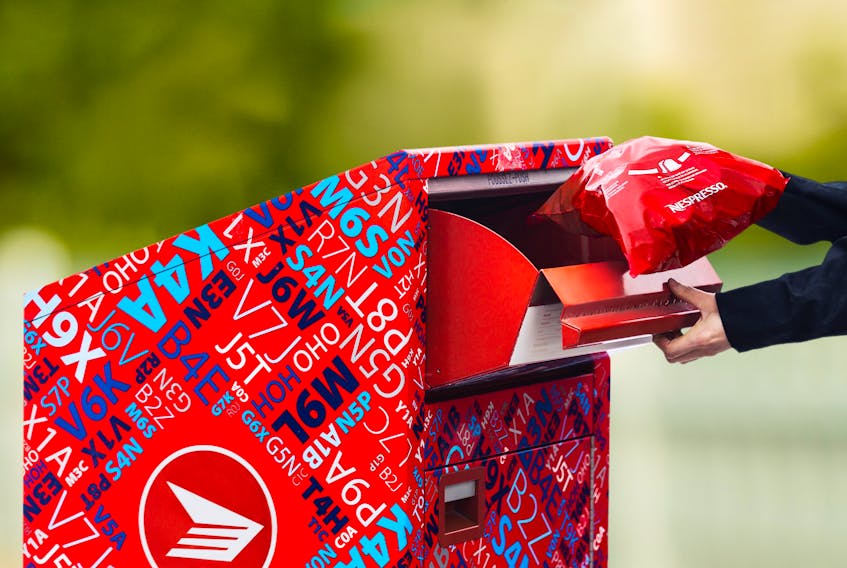A new program to reduce the environmental impact of singleuse coffee capsules was launched this week by Nespresso.
Single-serve coffee systems have been criticized for the amount of waste they produce, and although the coffee companies claim the pods are recyclable, not every community — including Halifax — has the ability to carry out the recycling. As a result, most of the coffee pods end up in the landfill.
While Nespresso’s capsules are made of 100 per cent aluminum, which can be recycled again and again without degrading the quality of the material, the company says that recycling might be offputting for a product whose appeal is partly based on convenience.
The capsules have always been recyclable in Canada, but people would have to open them, empty them, clean them and remove the coffee grounds.
Partnering with Canada Post for the new Red Bag program, Nespresso will provide a recyclable bag to consumers that they can fill with used coffee capsules and send through the mail, at no extra cost.
The bags can be dropped off at any Canada Post outlet or placed directly into one of Canada Post’s mailboxes.
Once the bags reach the recycling facility, the coffee grounds and aluminum are mechanically separated. The grounds are then sent to be used by farms as compost, while the aluminum is collected and sold.
Nespresso said in a news release it aims to have a 100 per cent neutral carbon footprint by the year 2020.









